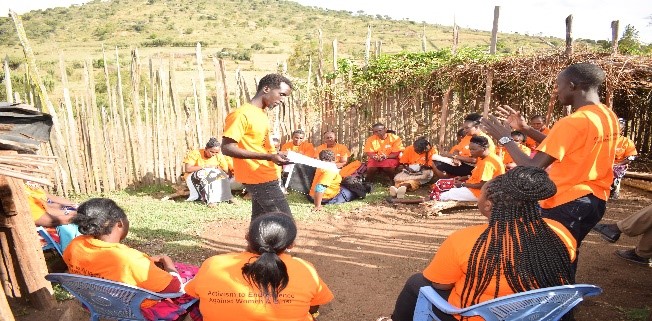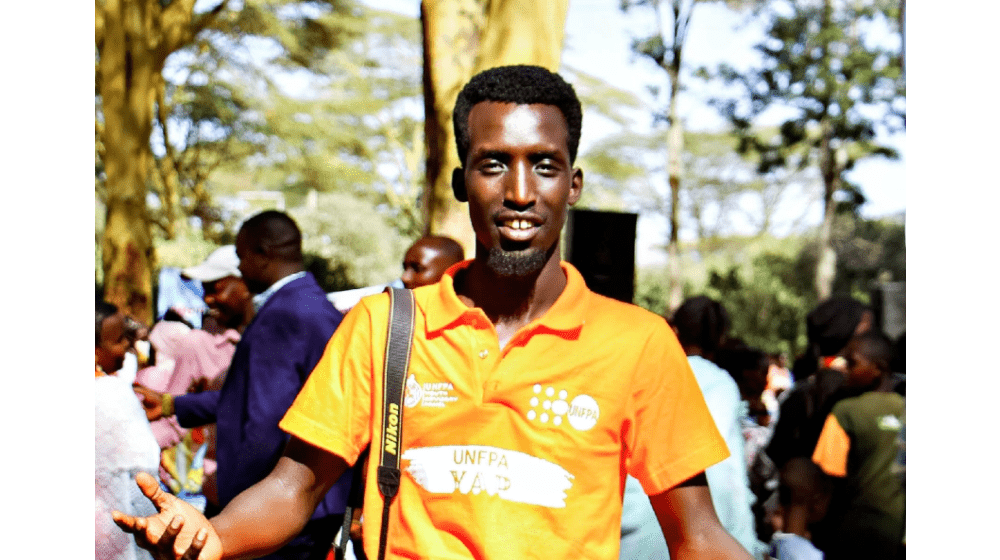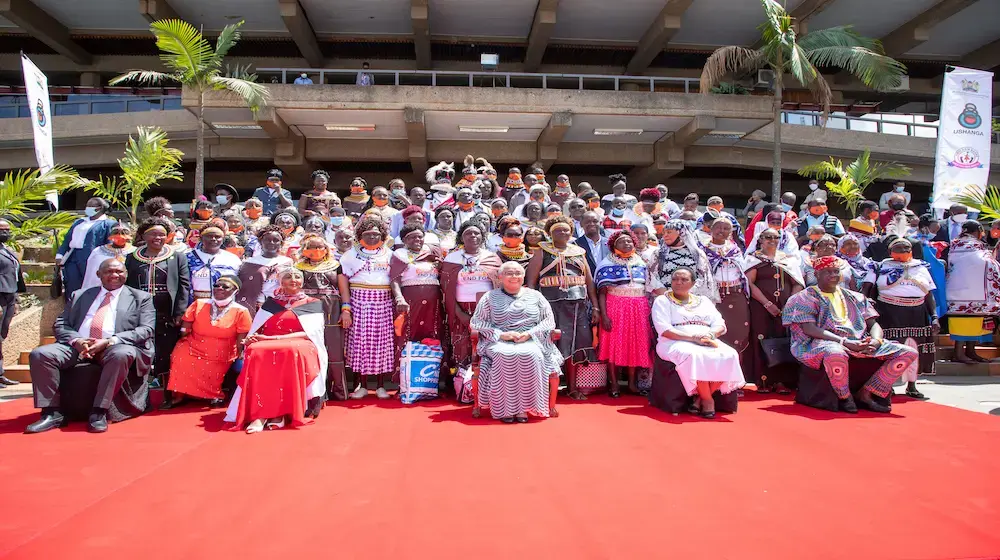As a young anti-FGM champion and UNFPA Youth advisory panel member representing Samburu county, my work revolves around sensitizing the community on the negative effects of female genital mutilation, and child marriage. I also lead campaigns to keep girls in school, which is critical to protecting them from these harmful practices.
During the December 2022 holidays, I hosted a youth-led grassroots campaign in morijoi village, Samburu West, where we discussed strategies to keep girls safe during the school break. Through this dialogue, we were able to reach 80 young men and women, including 12 teen mothers. It was especially touching to hear the stories of the teen mums, some of whom had been forcibly married off at a tender age. “I didn’t get to choose what I wanted for my life. Someone else decided that I would drop out of school and become a child bride,” said one of the teen mothers. She vowed to act as a whistleblower by speaking up whenever a girl in the community is at risk of FGM or child marriage.
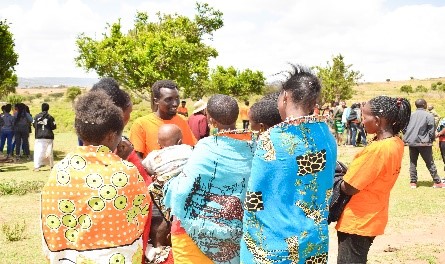
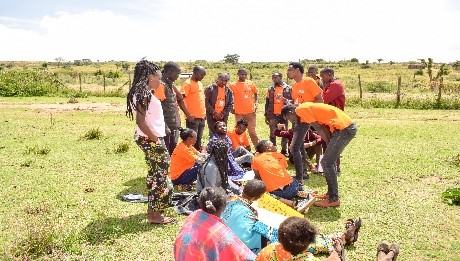
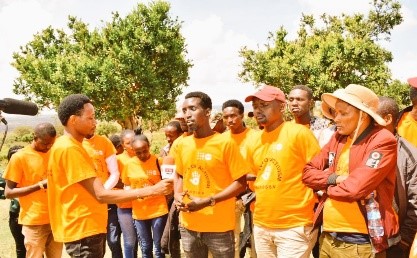
Samburu County Gender Officer Mr. Albert Wanjohi and the County Director of Gender Mrs. Nasieku Letipila also attended the event and encouraged us to use our power as young people to end FGM and Child Marriage in our generation
Peer mentorship at local schools
I have been working closely with the Samburu county government Gender department as a youth mentor in the peer to peer anti-FGM campaign. Once schools resumed, it was time to visit as many as possible to interact with young adolescent girls and boys and sensitize them on the dangers of FGM and the triple threat of HIV, GBV, and pregnancy among adolescents.
Through the campaign, we have been having youth-for-youth talks in schools where we encourage young people to study and raise awareness on the negative sociocultural norms that limit youth potential. We also encourage boys to be gender equality champions and speak up when a girl’s health and well-being is threatened by practices such as FGM.
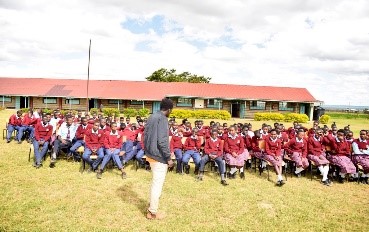
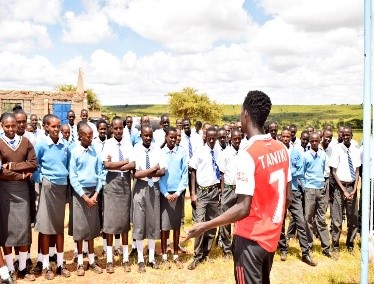
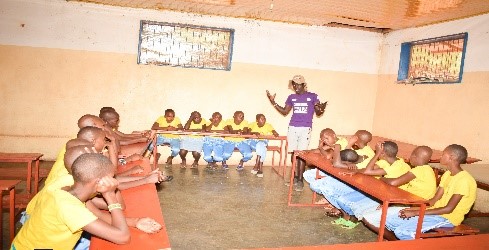
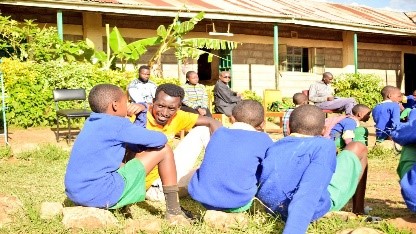
Conversations with Samburu Morans
A Samburu Moran is a young man who has passed through the initiation stage. They are considered the protectors of the community, and are therefore highly revered. Despite this, they have been left behind and are rarely included in community dialogues on transforming harmful cultural and social beliefs and practices. We recently organized several dialogues with the Morans where we sensitized them on how FGM impacts the health of women and girls, and the impact this has on our community’s development.
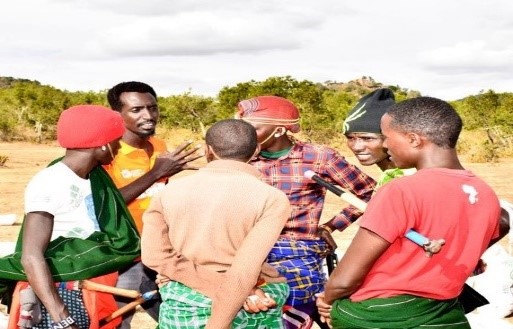
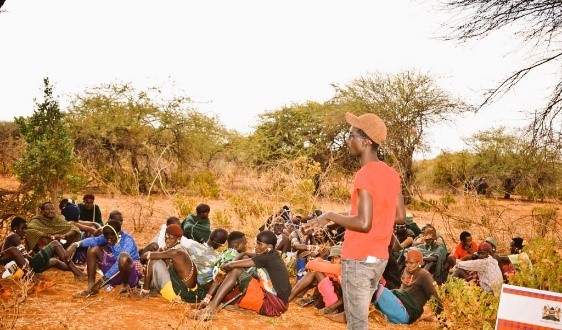
The morans were highly receptive, admitting that they had so far only viewed anti-FGM campaigns as efforts to destroy the Samburu culture. “You have opened our eyes to this issue. None of us would want our sister or mother to die as a result of FGM,” said one moran.
Integrating FGM and menstrual hygiene outreach in Kisima
On Sunday, I visited Kisima ACK church, where I took part in a sanitary pad distribution exercise that also served as an opportunity to sensitize adolescent girls and young women present on the need to eliminate FGM in our community. We distributed sanitary pads to the 200 girls present, which they highly appreciated. We further held similar dialogue sessions with women in the community where sanitary pads were distributed. In total, we distributed 600 packs of sanitary towels.
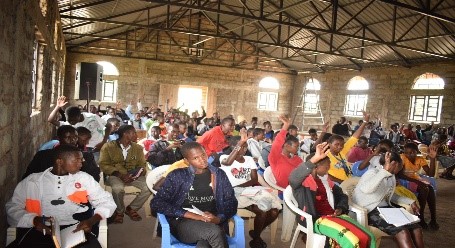
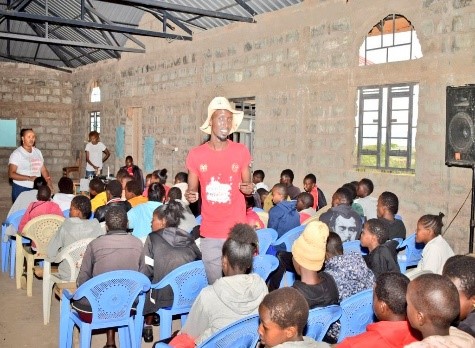
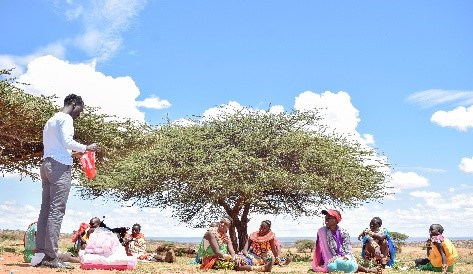
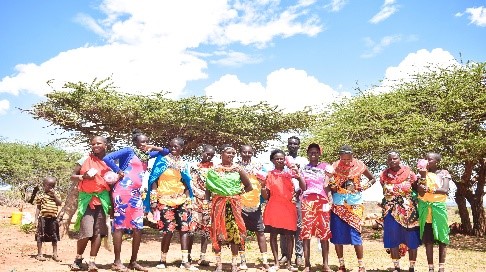
Finally, it was time to engage members of the Shabaa women’s group in a dialogue on FGM. As mothers, they are key to ensuring young girls in our community do not undergo FGM. Though sometimes slow, I am proud of the progress we are making as a community towards the elimination of FGM, and I have faith that one day we shall achieve zero FGM.
